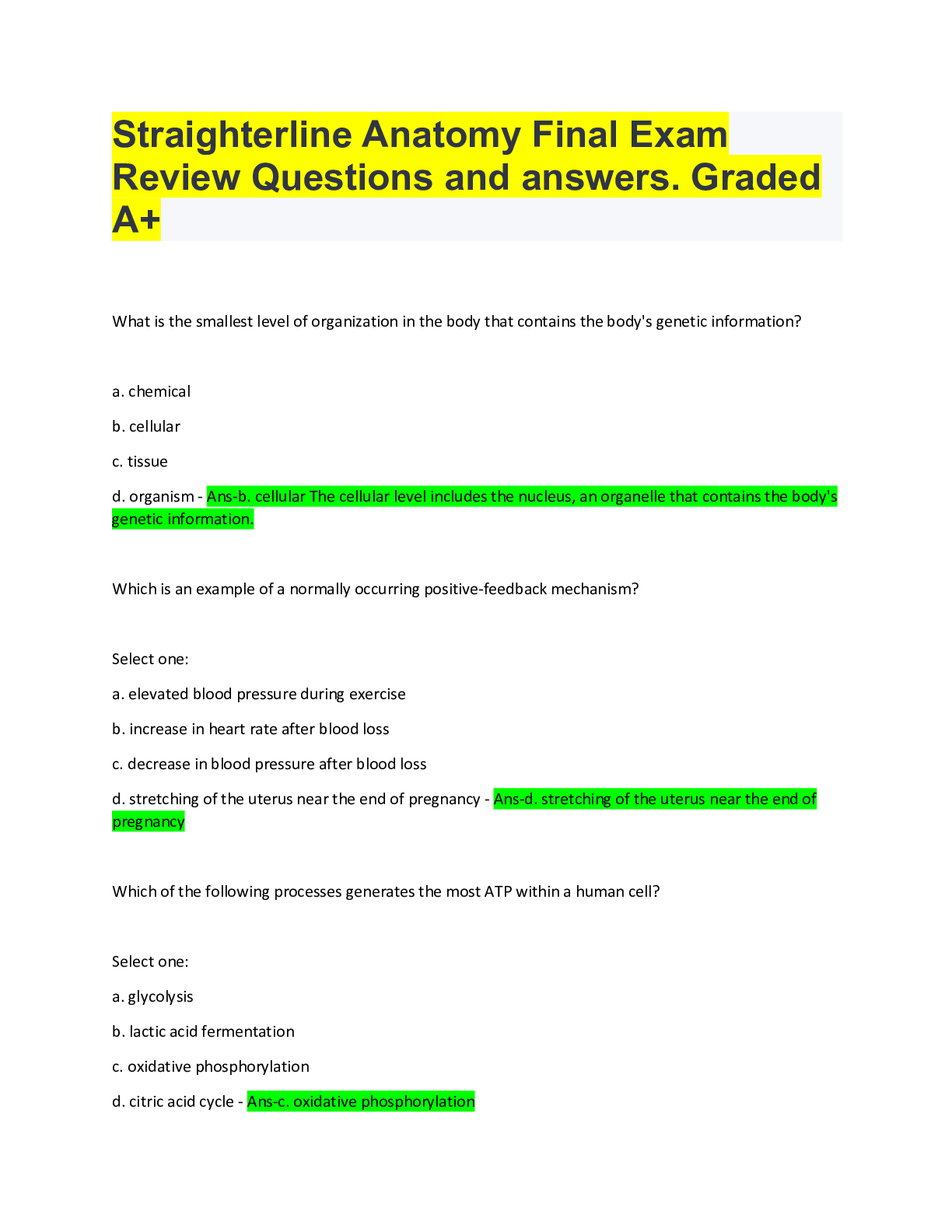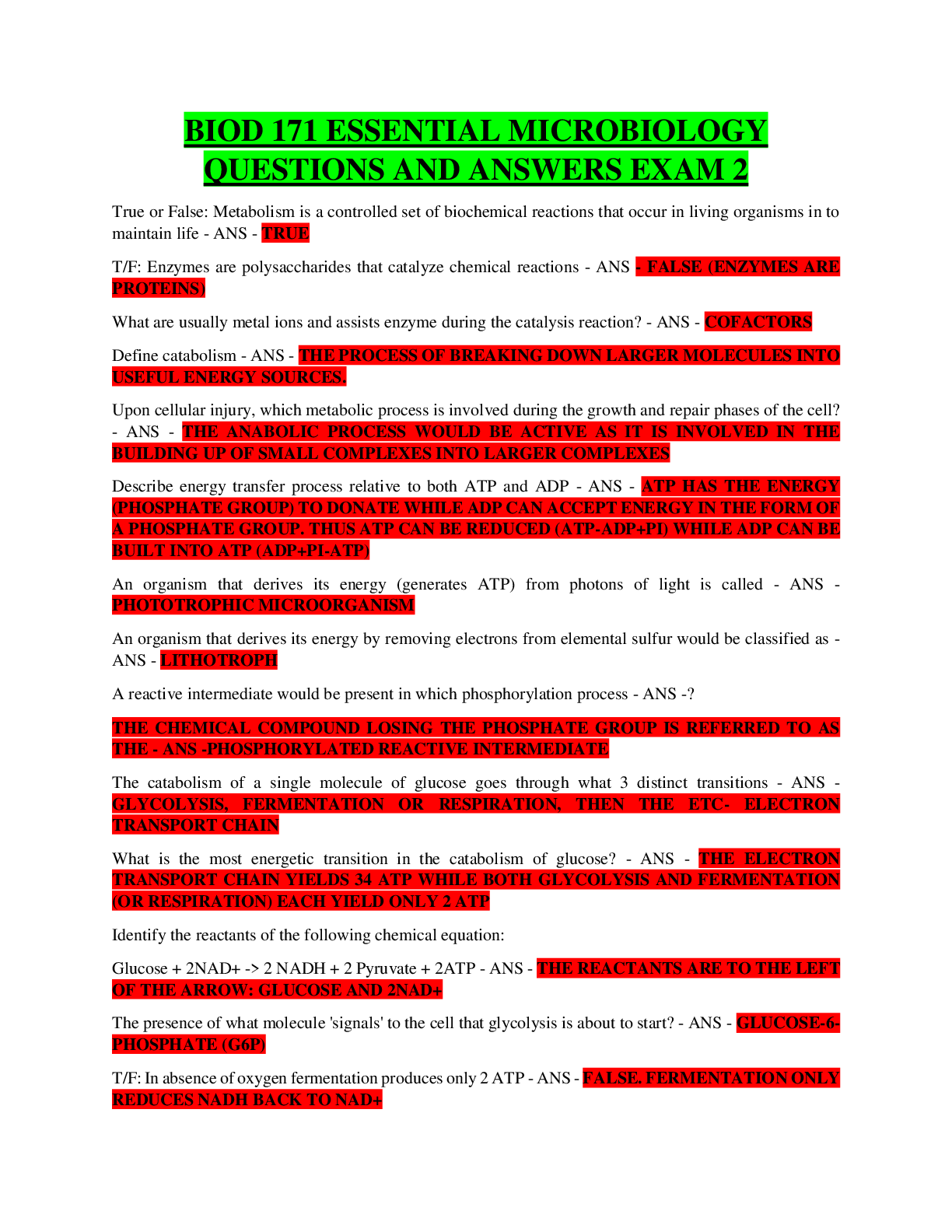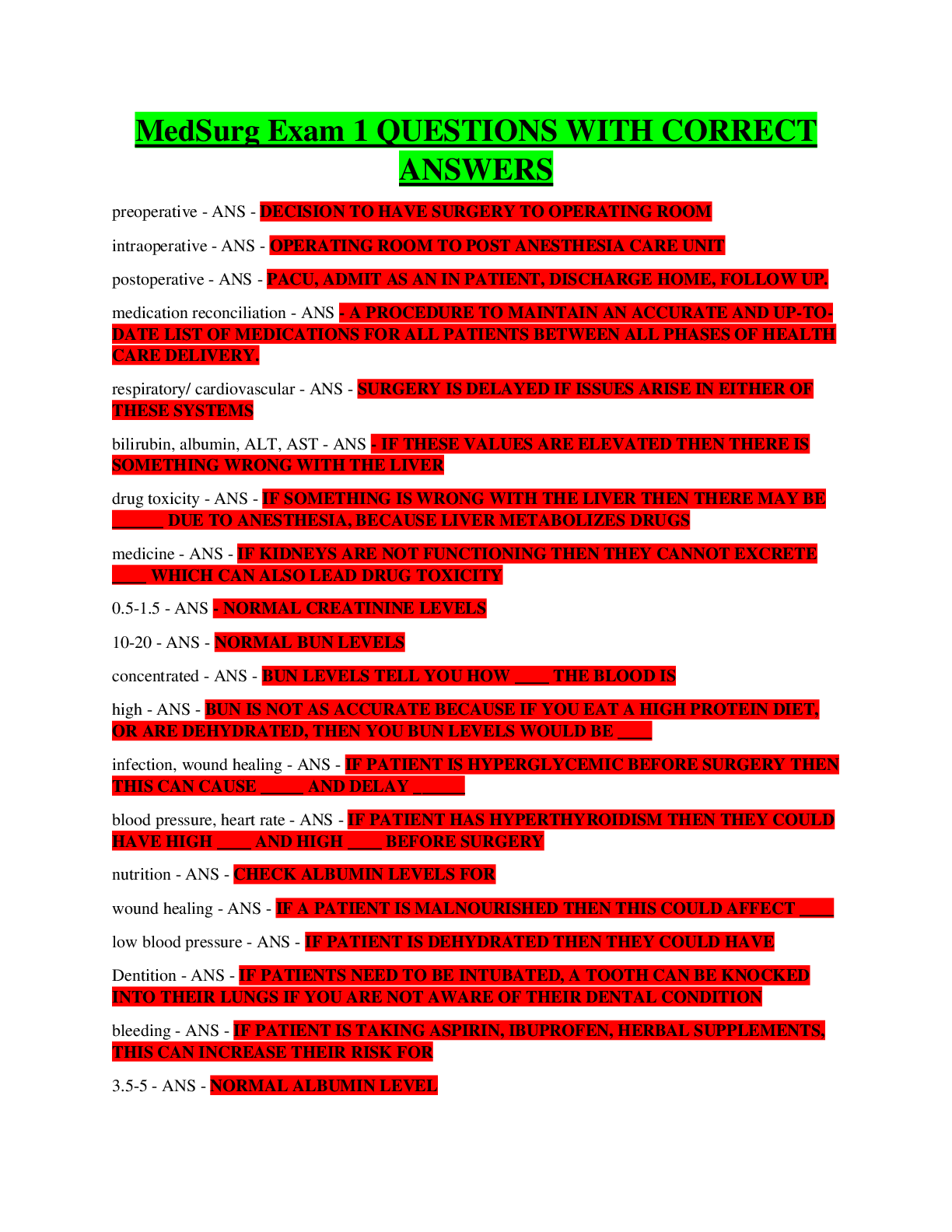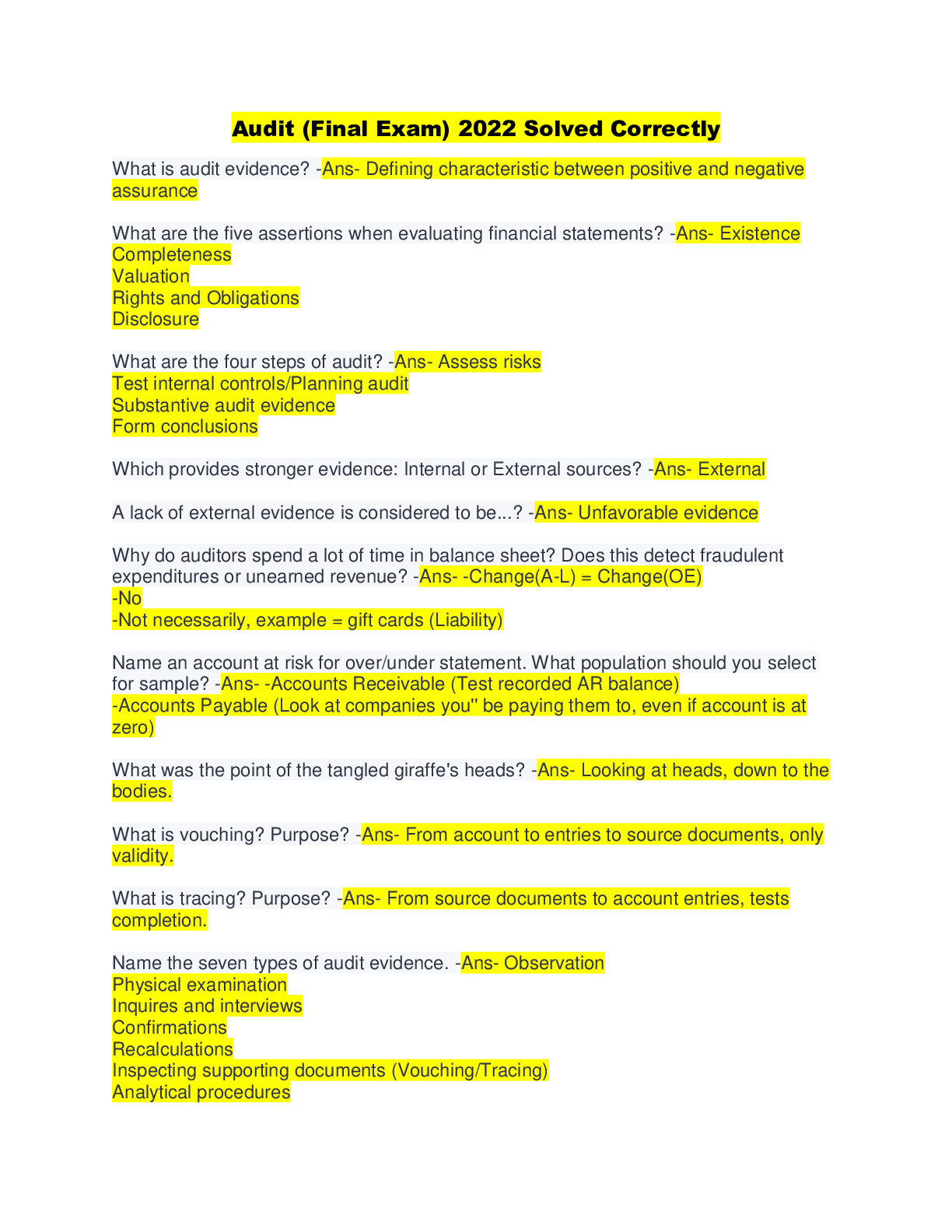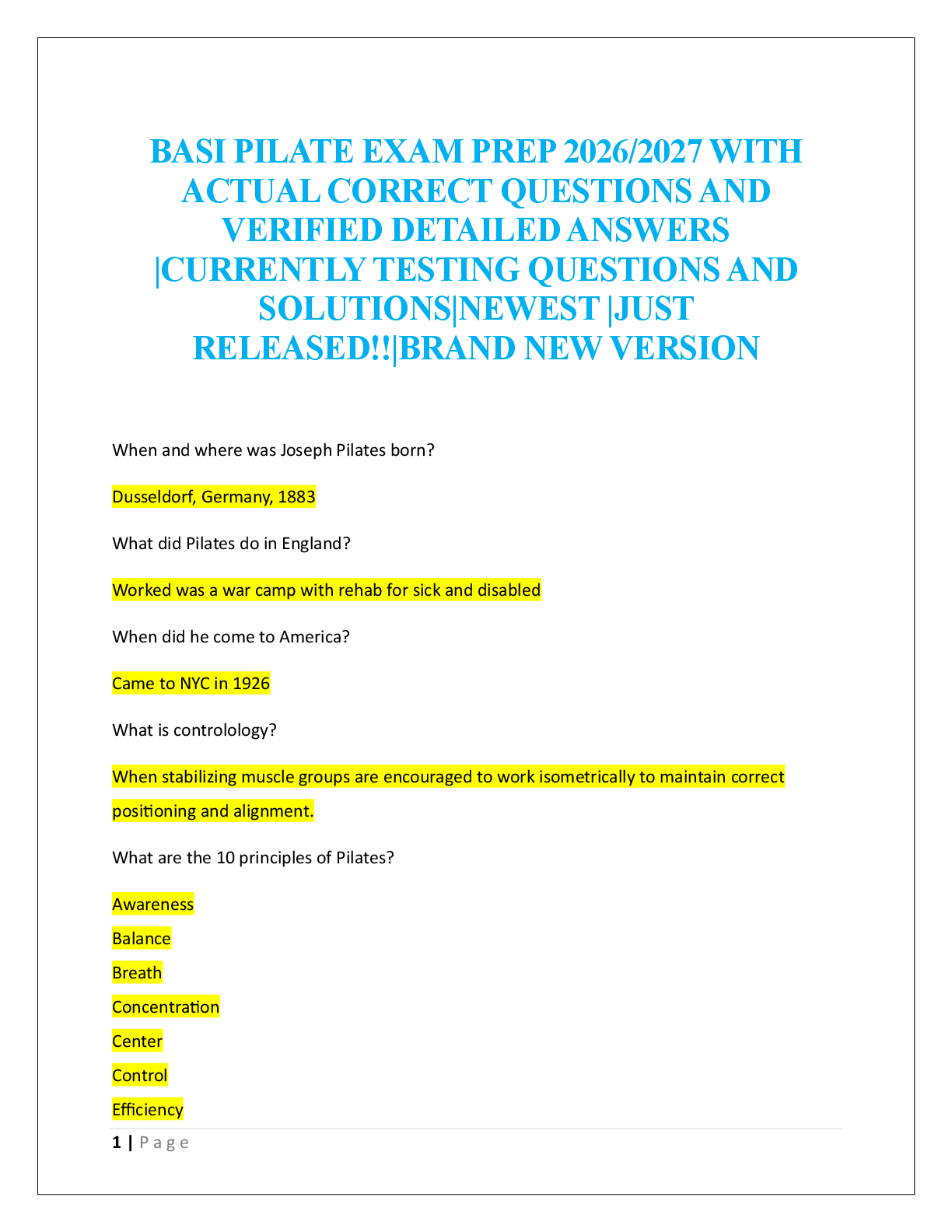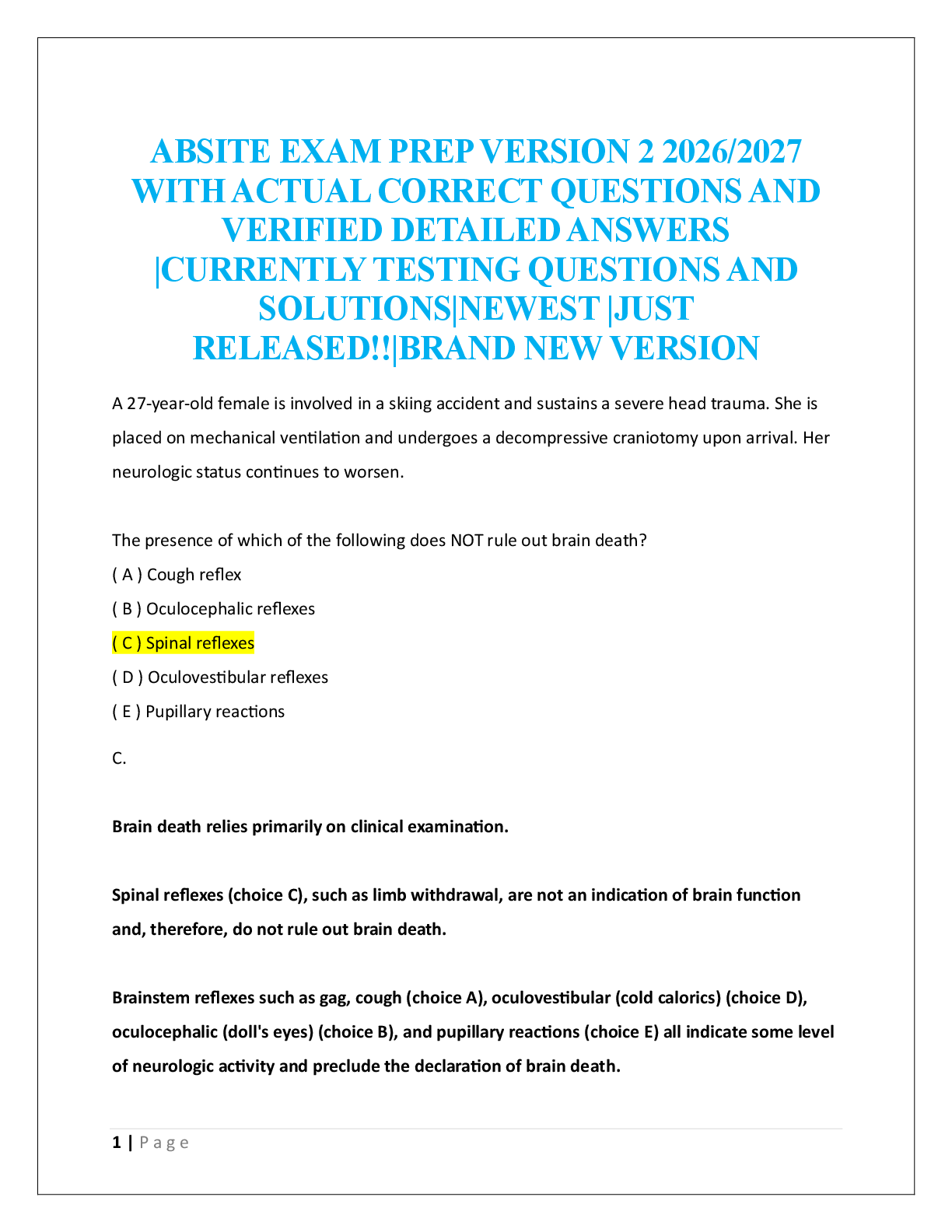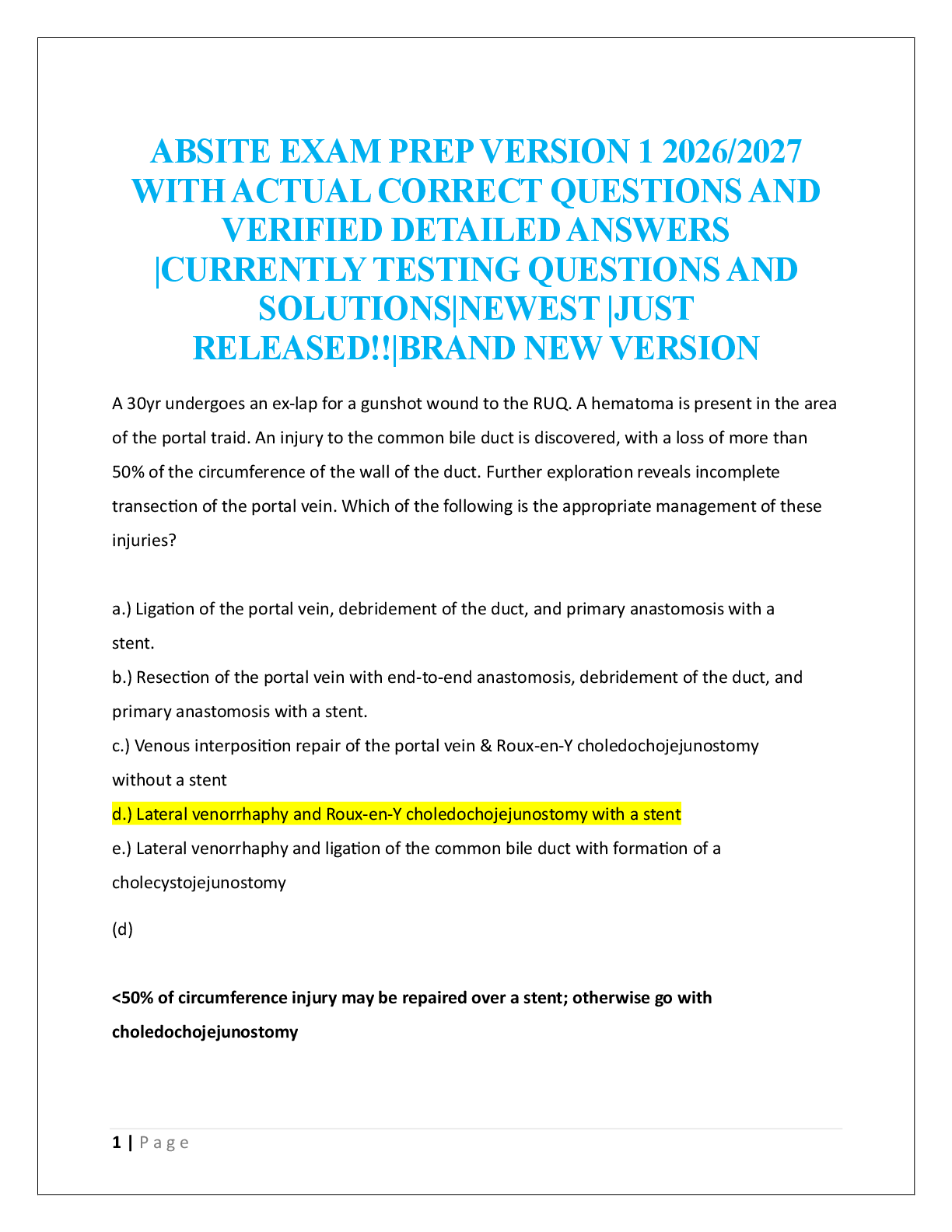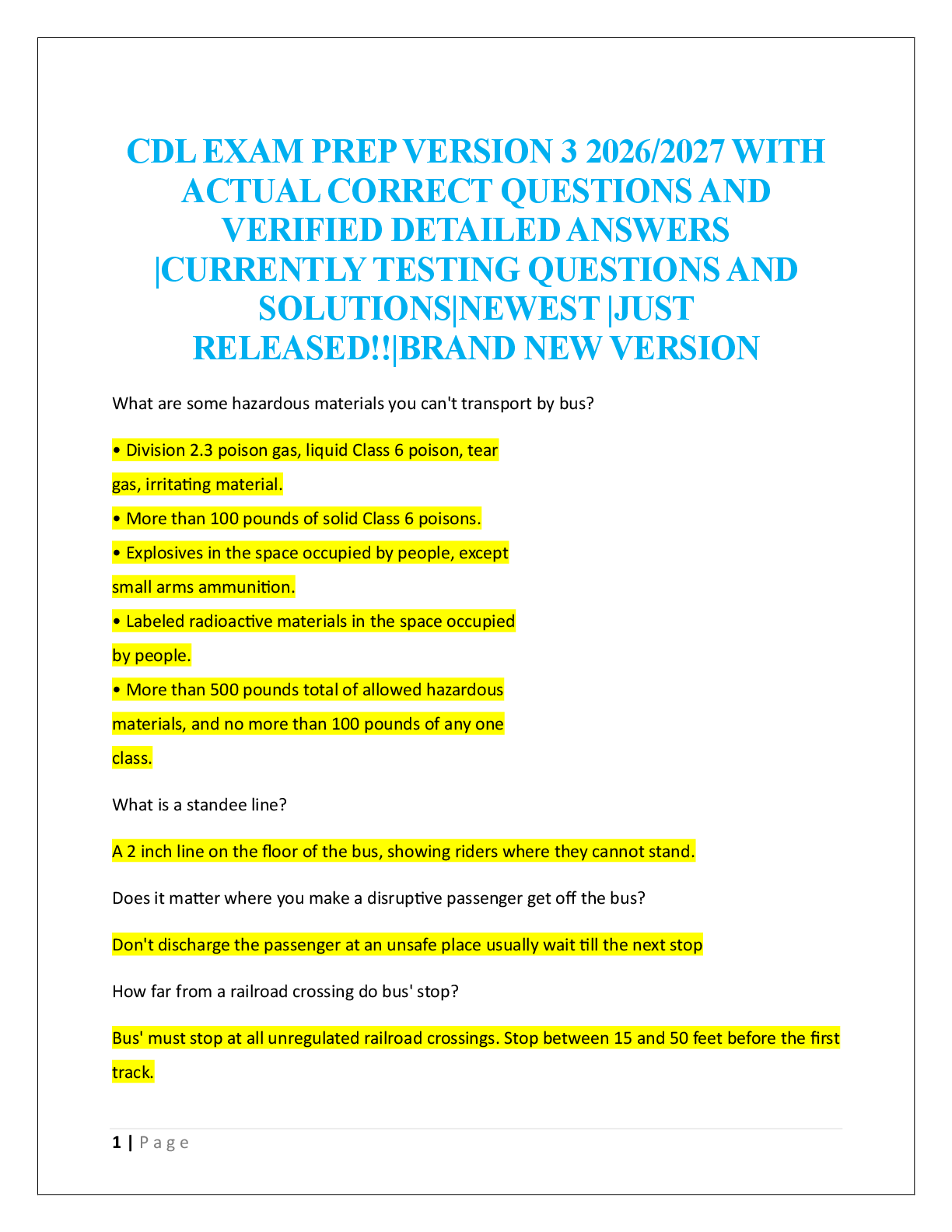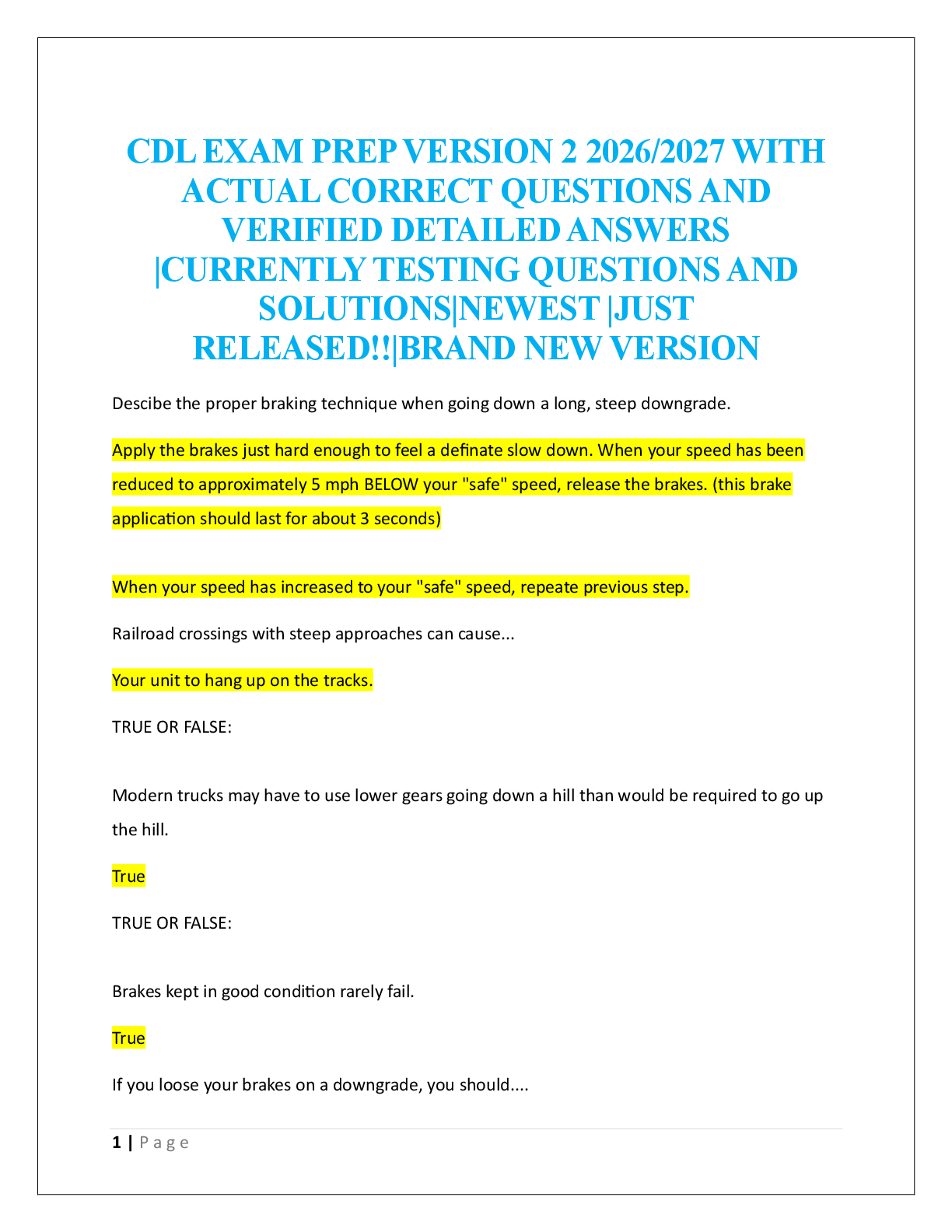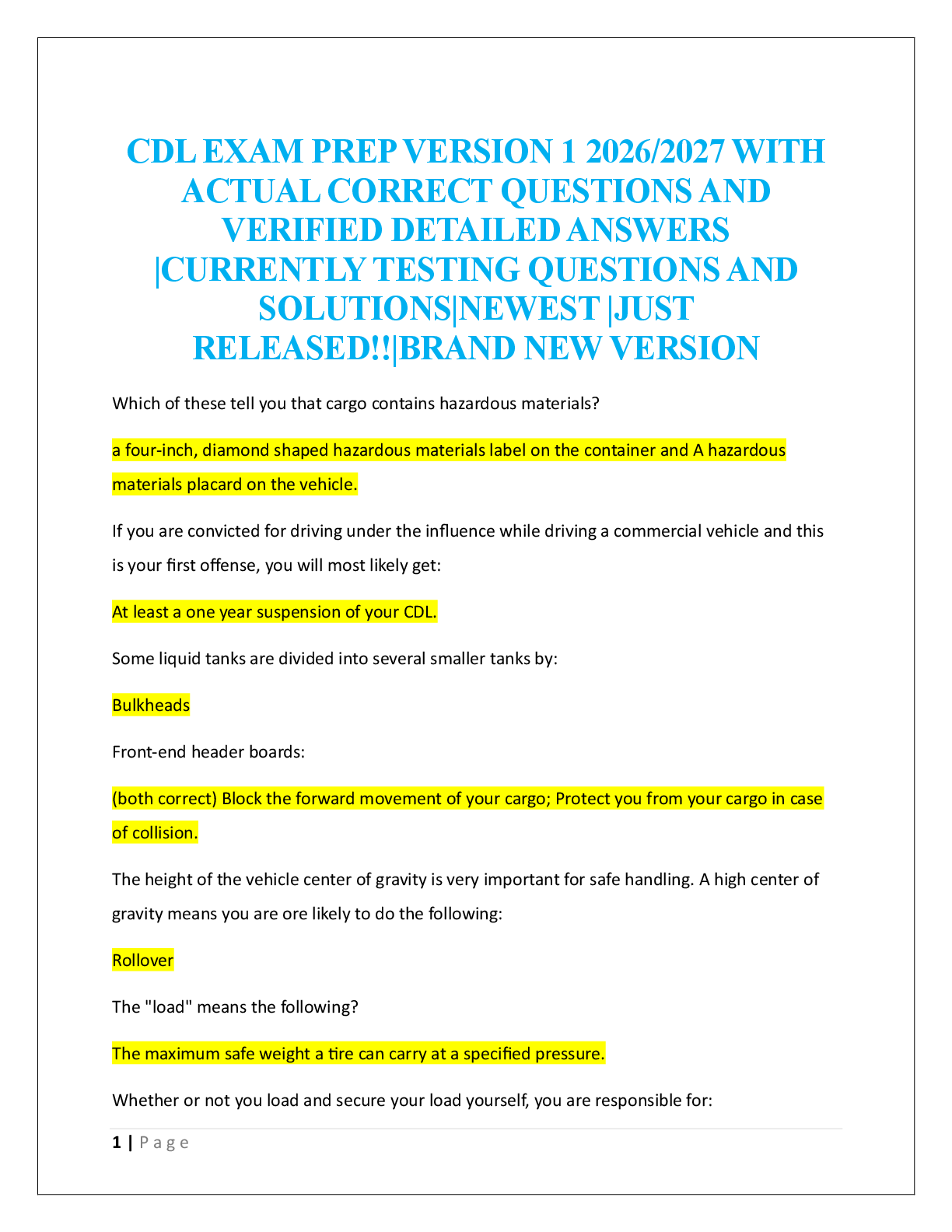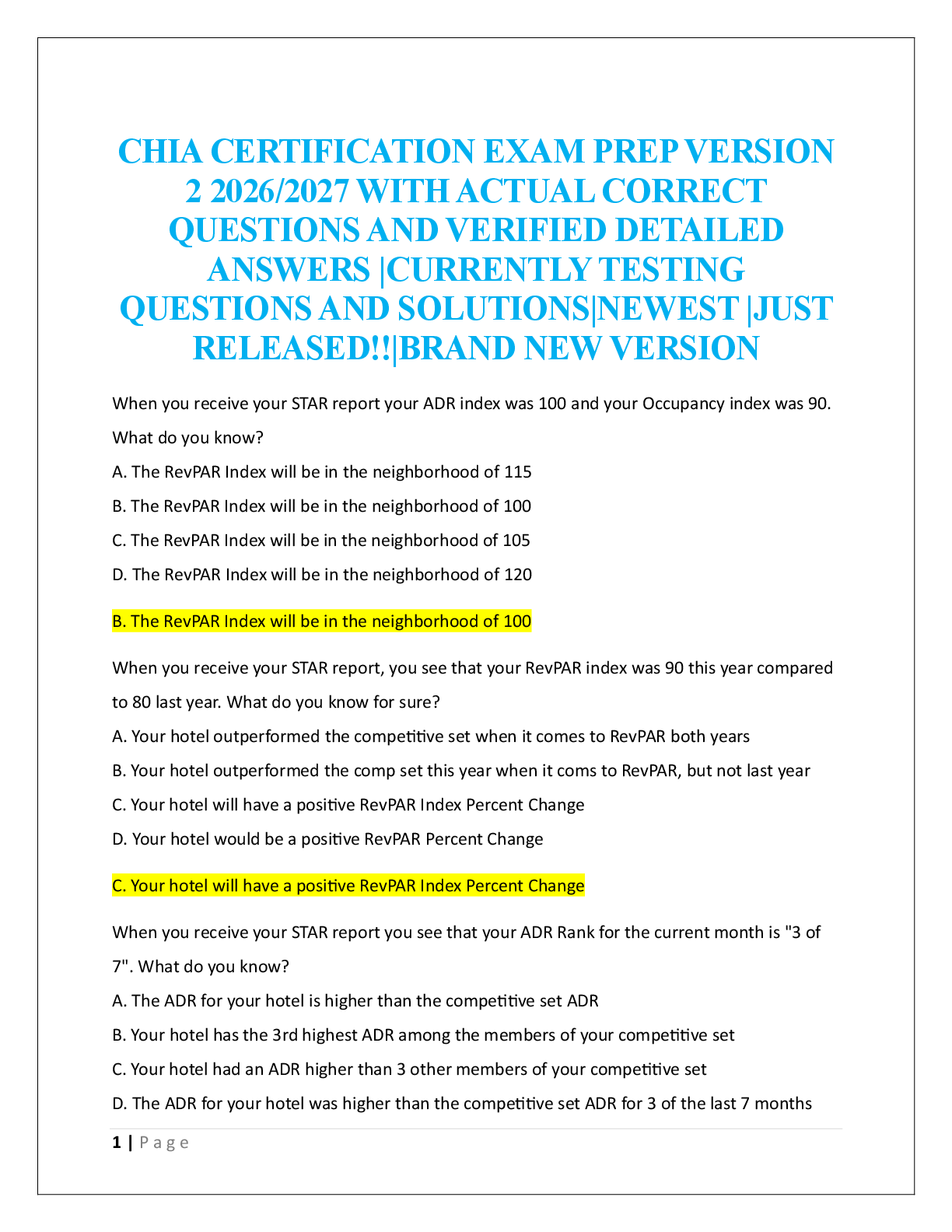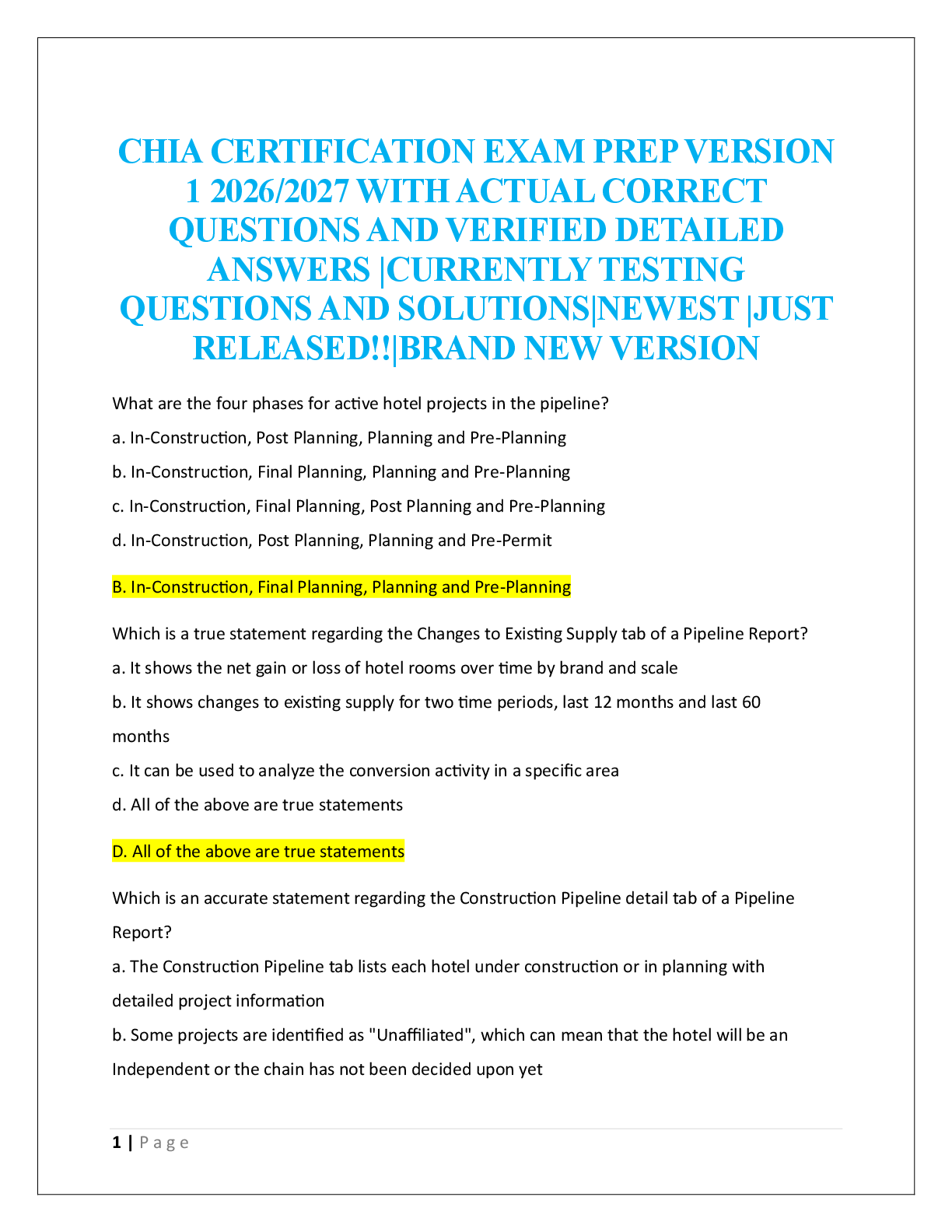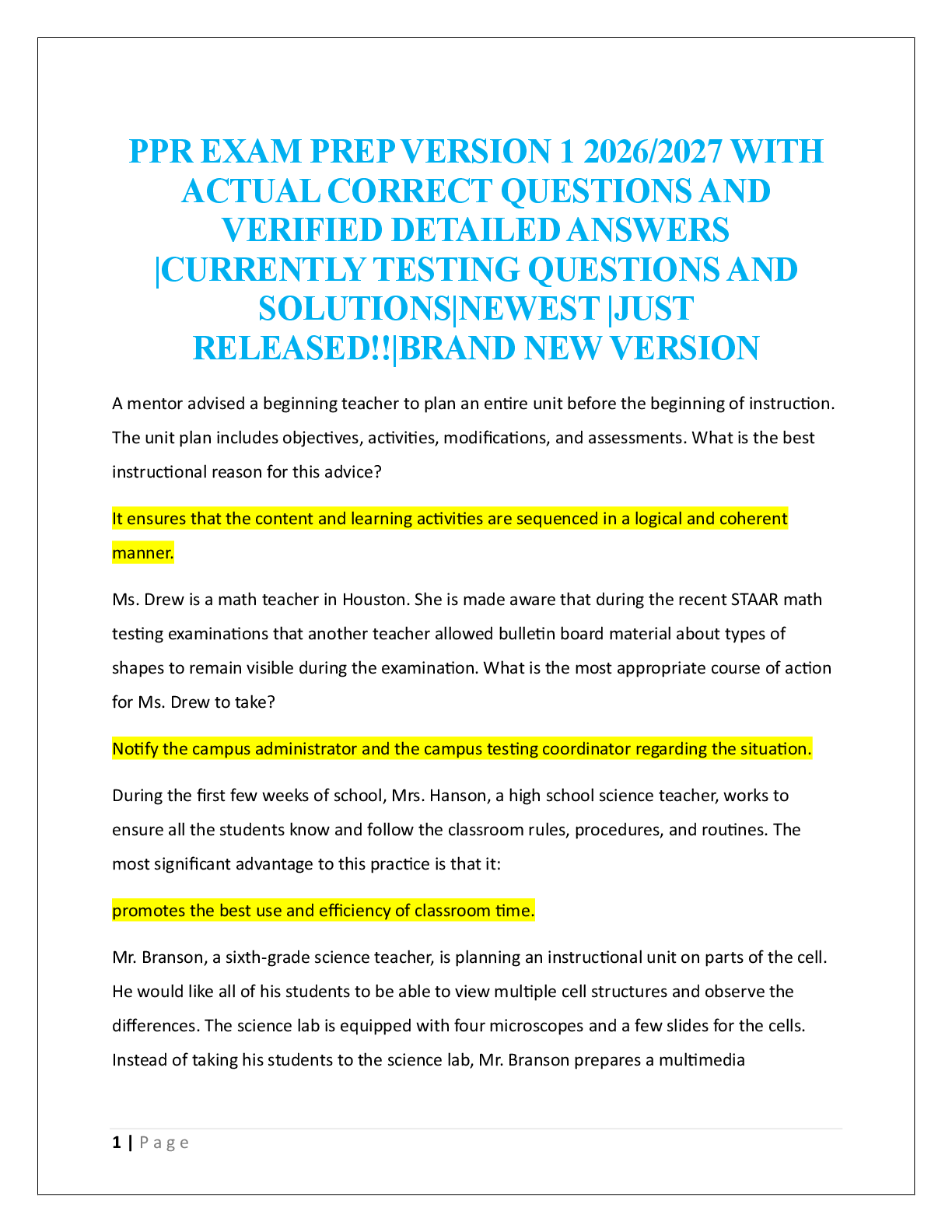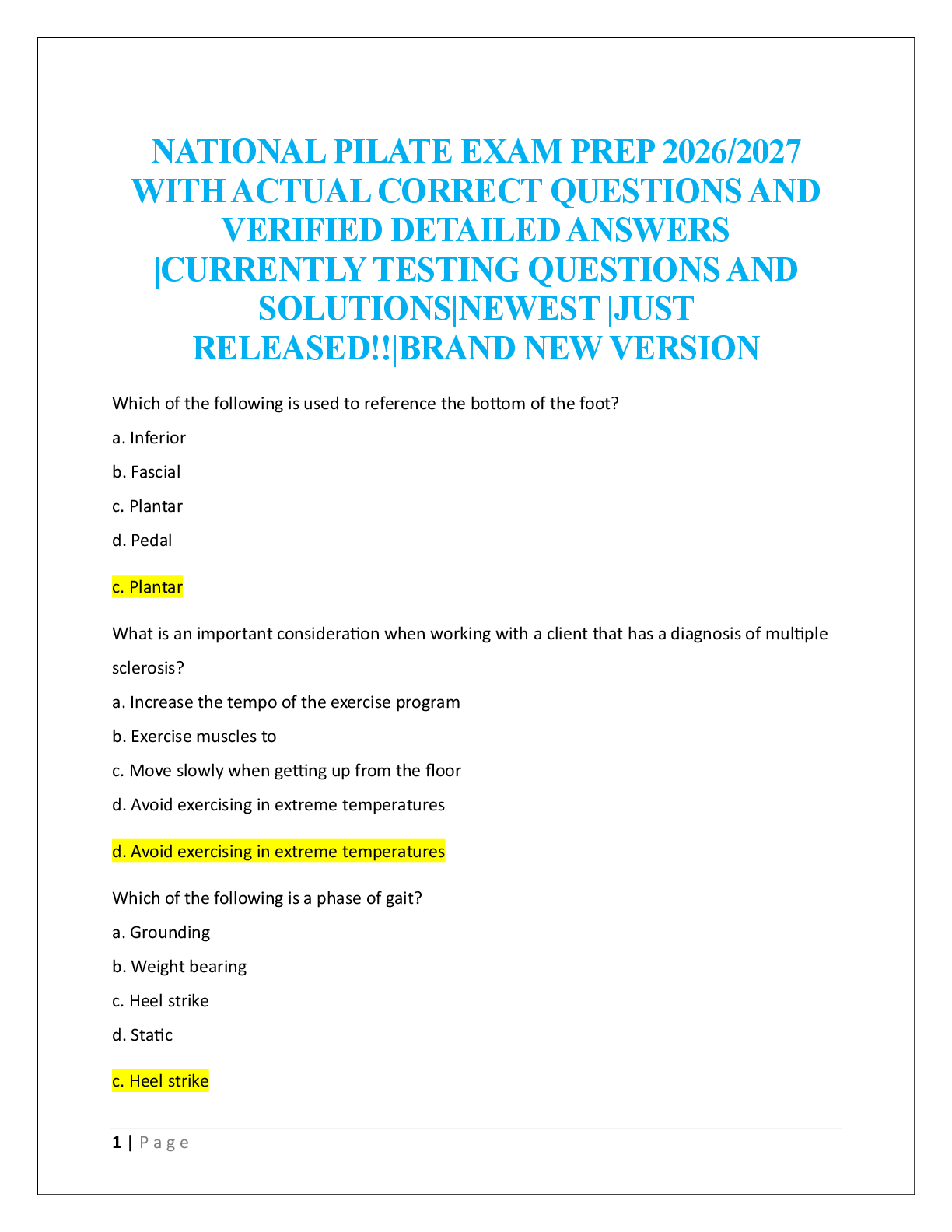(Answered) Test 1 CCRN (Pass CCRN) What is vasogenic cerebral edema? answer- Vasogenic cerebral edema is an increase in extracellular fluid caused by a breakdown of the blood-brain barrier with the resultant increase in
...
(Answered) Test 1 CCRN (Pass CCRN) What is vasogenic cerebral edema? answer- Vasogenic cerebral edema is an increase in extracellular fluid caused by a breakdown of the blood-brain barrier with the resultant increase in vascular permeability. This cerebral edema begins locally and becomes more generalized. Common causes are trauma (including surgical trauma), tumors, hemorrhage, and abscesses
What ventilator parameter indicates fluid volume excess? answer- An A:a gradient greater than 10 mm Hg is a reflection of a diffusion defect. Note that the process of diffusion is between A (alveolus) and (a) arterial blood. An increase in intraalveolar fluid dilutes and inactivates surfactant, causing alveolar collapse (decreasing vital capacity) and decreases lung compliance. Peak inspiratory pressure increases reflect a decrease in lung compliance
What does autonomy refer to? answer- The patient's right to make decisions for themselves
What does beneficence mean? answer- Obligation to do good
What does nonmaleficence mean? answer- Obligation to do no harm
What does fidelity mean? answer- the obligation to abide by agreements and responsibilities
What does veracity mean? answer- The obligation to tell the truth
What are Diagnosis-Related groups? answer- DRGs constitute a prospective payment program for Medicare patients. Payment is based on primary and secondary diagnosis, primary and secondary procedures, age, and length of hospitalization
BNP is secreted in response to? answer- Ventricular wall stretch
What are omnious signs in a patient with status asthmaticus? answer- A normalization or increase in the PaCO2. This patient is still tachypneic, and if ventilation is normal, PaCO2 should be decreased. The other ominous sign in this patient would be absence of wheezing or rhonchi, because they would indicate that ventilation is insufficient to cause these noises.
What problems arise from losses from the GI tract? answer- Any loss results in hypokalemia. Vomiting results in loss of acidic contents, whereas losses below the pylorus result is alkalitic losses leading to metabolic acidosis. Fluid is sequestered in the intestine leading to hypovolemia, which could cause hypovolemic shock.
Actual problems are worse than potential problems!! answer-
How can you differentiate the cause of jaundice? answer- An increase in direct bilirubin is associated with biliary obstruction because direct bilirubin is conjugated. An increase in indirect bilirubin is associated with hepatic disease or excessive hemolysis because indirect bilirubin is unconjugated
What antihypertensive meds work best in African american patients? answer- African-Americans do not respond well to angiotensin-converting enzyme inhibitors (e.g., captopril [Capoten]), but they do respond well to an angiotensin II blocker (valsartan [Diovan]). Of the beta-blockers, labetalol works best. Of the calcium channel blockers, diltiazem works best
What lab values define acute respiratory failure? answer- 50-50! PaO2<50 and/or PaCO2>50
Hyperkalemia can cause what? answer- Diarrhea-increases gastric motility Flaccid paralysis- partially depolarizes muscle cells, prevents further depolarization
Every 1 inch increase in abdominal girth equates to how much blood accumulation in the abdomen answer- 500-1000mL
[Show More]



